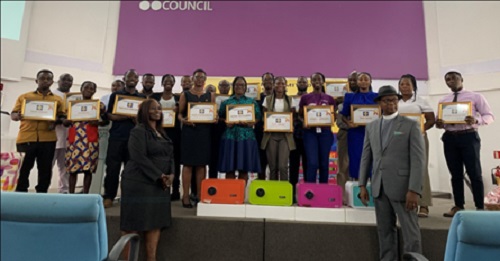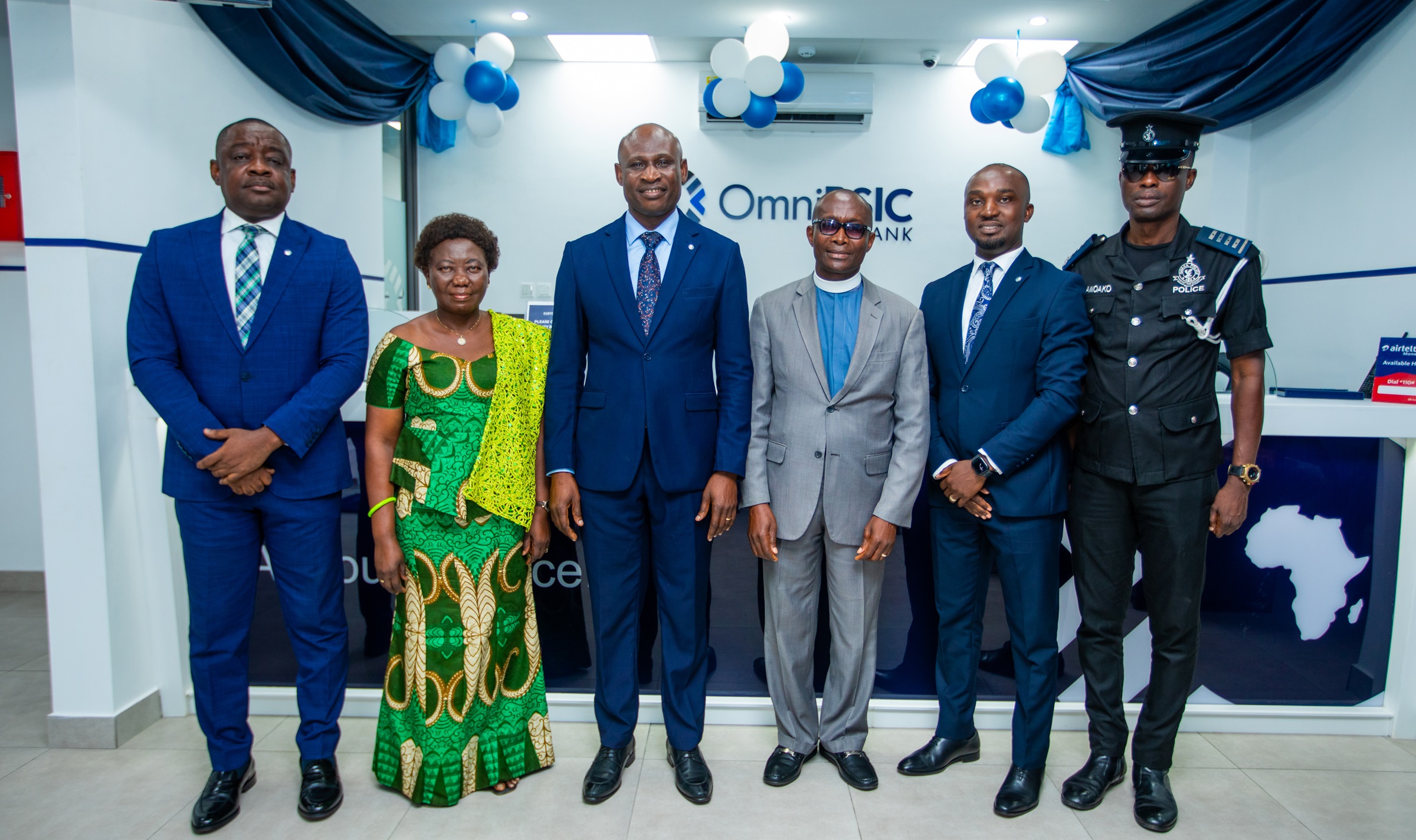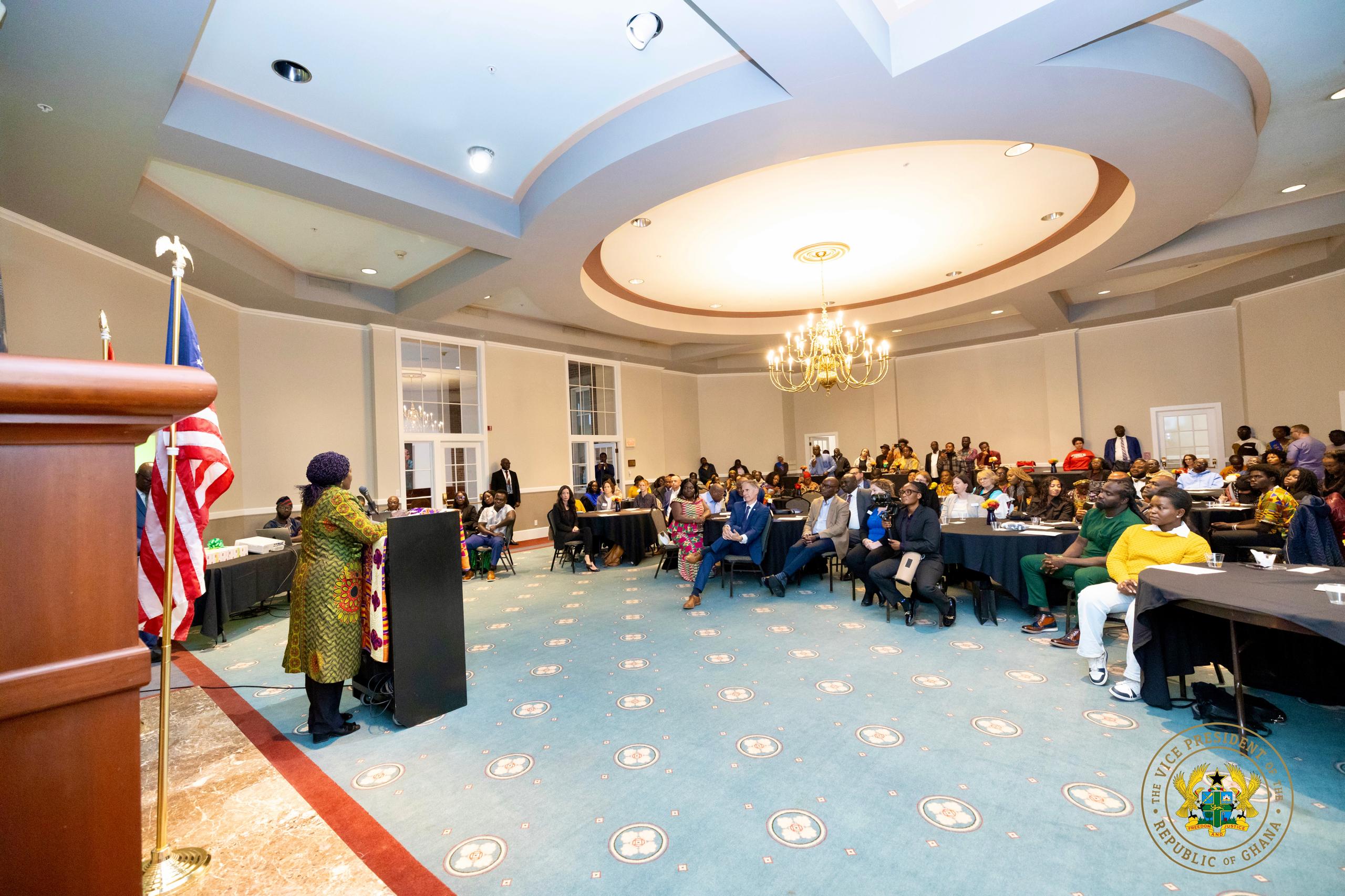
…Immediate Past President of CIB Ghana urges firms to blend global sophistication with local relevance
In recognition of her transformative impact on customer service and ethical leadership in Ghana’s banking industry, Mrs. Patricia Sappor, the immediate past President of the Chartered Institute of Bankers (CIB) Ghana, has been honoured with the Customer Experience (CX) Lifetime Achievement Award at the Ghana Customer Experience Awards (Ghana CXX Awards 2025).

The organisers described the award as an honour that goes beyond individual recognition and celebrates her leadership in driving measurable improvements in customer service, integrity and institutional governance across Ghana’s financial sector.
Mrs. Sappor, a chartered banker with over 33 years of experience, is widely credited with transforming customer-service culture at Ecobank Ghana and across the Ecobank Group, setting a benchmark for standards of responsiveness, transparency and reliability that many institutions now aim to parallel.
From humble beginnings to banking excellence
Born into a devout Christian family in Accra, Patricia Sappor developed an early fascination for banking through frequent visits to deposit money with her mother. The uniforms, precision, professionalism and the discipline she observed left a lasting impression that would later define her career.
Her banking journey commenced at the now-defunct Bank for Housing and Construction (BHC), where she spent 11 years in roles spanning from branch operations, account services, credit analysis, to mention a few. These years gave her a good understanding of the banking business, operational efficiency and customer-facing challenges.
In the mid-1990s, eager to deepen her expertise, she travelled to the United Kingdom (UK) to further her education, where she earned an MBA in Finance from the University of Leicester. She also became an Associate of the London Institute of Banking and Finance. She later obtained a CPD Diploma in Public Relations and Reputational Management from the London School of Public Relations.
Upon returning to Ghana in 1995, Mrs. Sappor joined Ecobank at a time when the bank was seeking to establish a structured customer service function. Drawing on her multi-disciplinary experience in branch banking, risk management, operations, treasury as well as the intense customer service training acquired in Kentucky Fried Chicken during her studies in the UK, she was well-placed to reposition Ecobank Ghana as a customer-centric institution, initiating and establishing several activities and programmes to improve and ensure positive customer experience.
She developed comprehensive training manuals, spearheaded extensive staff training programmes, organised customer fora and introduced clear service standards and turnaround times. She also established robust feedback mechanisms and internal recognition schemes to promote a culture of excellence. Her efforts also extended to establishing Stella Contact Centre in Ecobank Ghana and across the Ecobank Group, with the Contact Centre in Ghana now regarded as one of the best in Ghana and Africa.
Her visionary work earned Ecobank Ghana several national awards for service excellence.As Group Head of Customer Service across 26 African countries at the time, she championed the standardisation of service delivery across diverse markets, improving consistency, reducing complaint resolution times and boosting customer retention.
While there is no public data to reveal the exact figures for customer satisfaction or net promoter scores during this period, stakeholders attribute improved consistency, reduced complaint response times and greater customer retention to her leadership. Her subsequent role as Regional Head Marketing and Corporate Communications AWA (Anglophone West Africa i.e. Ghana, Sierra Leone, Gambia Liberia, Guinea) was marked with impressive contributions to developing and implementing the brand marketing and communication strategy for Ecobank.
Leadership beyond Ecobank
As the first female President of the Chartered Institute of Bankers, Ghana (CIB), Mrs. Sappor led key industry reforms, including the passage of the Chartered Institute of Bankers Act, 2019 (Act 991), a landmark legislation mandating the CIB to promote banking education and regulate professional practice in Ghana.
She reinforced the importance of ethics, professional standards and accountability as core components of banking and financial services provision, leading to the development of a new Code of Conduct for Bankers jointly launched by CIB, the central bank and the Ghana Association of Banks. The code includes provisions for sanctions and blacklisting of errant behaviour in order to restore public trust in banks after episodes of institutional failures.
A strong advocate for digital transformation, she championed digital transformation as central to delivering better customer convenience and experience. She consistently called on financial institutions and the CIB to leverage technology, equip professionals with digital skills, innovate in delivery channels and adopt models to deliver excellence.
Industry leaders and voices attribute many of today’s standard customer service tools such as centralised complaints desks and structured service standards to practices she pioneered at Ecobank. Specifically, one senior banking executive remarked that many of the customer-care tools taken for granted today, such as centralised complaints desks, service standards across branches and customer feedback systems, reflect lessons from Ecobank’s prior customer service practices under Mrs. Sappor. Anecdotal evidence suggests improved performance in customer satisfaction, fewer escalated complaints and heightened competitive pressure among banks to improve service during her time at the helm of CIB Ghana.
Her integrity and impact have also been recognised by numerous bodies. In 2020, she was honoured by the West Africa Nobles Forum for honesty, integrity and accountability. In 2021, she received an Inspirational Female Leadership Commendation at the African Business Leaders Awards, further reinforcing her role not just as a practitioner but as a standard setter in the domestic financial sector.
A legacy of service and a voice of wisdom
Accepting her latest honour, Mrs. Sappor remarked: “This recognition is not mine alone; it belongs to every banker, service professional and customer who has believed that excellence is not an act, but a habit. For me, customer experience has never been about technology alone; it is about empathy, consistency and the willingness to listen. When we humanise our services, we dignify our customers; and when we dignify our customers, we build trust that no competition can destroy”.
She further called for a national dialogue on service excellence, emphasising that customer centricity must cut across every sector of the economy through the health education and public service. “We need to have a national dialogue on the need for excellence and exceptional service delivery in every facet of the economy. It should be a national culture.”
She commended institutions and persons that have been intentional in ensuring positive customer experience in their organisations. She expressed a strong desire to continue aiding the next generation of customer experience professionals to raise the standards. “Customer experience is not a destination; it is a journey of continuous improvement. As Ghana’s financial and service sectors evolve, our responsibility is to keep the customer at the centre of innovation, governance and ethics. I am deeply honoured by this recognition. But my greatest reward will be to see a generation of professionals who redefine service not as an obligation, but as a calling,” Mrs. Sappor pledged.
Championing a balanced approach to customer experience
Speaking to the media, Mrs. Sappor also urged businesses to align their customer experience strategies with both global expectations and local realities, warning that success in today’s data-driven marketplace depends on understanding the nuances of local customer behaviour.
She emphasised that globalisation and access to digital data are rapidly reshaping customer expectations from brands, even in emerging markets. “Ghanaian customers are no longer comparing banks or telecom companies only within our borders; they are comparing their experiences with global brands like Amazon, Apple or NVIDIA,” she said. “That means the standard for speed, convenience and personalisation has gone up. But how we meet these expectations must reflect our local culture, our communication style and our customer values,” she added.
The banking veteran explained that the growing availability of real-time customer data, analytics and artificial intelligence has made it easier for firms to predict what customers want. However, she cautioned that data alone cannot replace human insight. “Technology is an enabler and gives us the information; but empathy gives us the connection. To create lasting relationships, businesses must listen deeply, understand context and design experiences that feel authentic to their customers’ environment,” she noted.
Highlighting examples from banking, she added that many local firms risk falling into the trap of “importing” customer experience models that may not align with local realities. “It is not enough to copy what global companies are doing. The most successful brands will be those that combine global sophistication with local relevance,” Mrs. Sappor stated.
She pointed to the banking industry as an example, where digital transformation has improved convenience but also highlighted cultural and behavioural differences in how customers use technology. “You cannot just deploy digital tools; you have to understand how people interact with them. For instance, in some communities, face-to-face reassurance still matters even when the transaction is digital. Good customer experience means bridging that gap,” she explained.
Mrs. Sappor’s remarks come as businesses face growing competition from regional and global players. With customers increasingly informed and connected, she said, companies must evolve from delivering transactions to building trust. “Customer experience today is not just about service; it is about meaning, relevance and connection. That’s what defines competitive advantage in a globalised world,” she noted.
Her legacy continues to inspire a new generation of professionals to view customer experience not merely as a function but as a calling rooted in empathy, excellence and integrity.
The post Patricia Sappor honoured for redefining customer experience in banking sector appeared first on The Business & Financial Times.
Read Full Story














Facebook
Twitter
Pinterest
Instagram
Google+
YouTube
LinkedIn
RSS